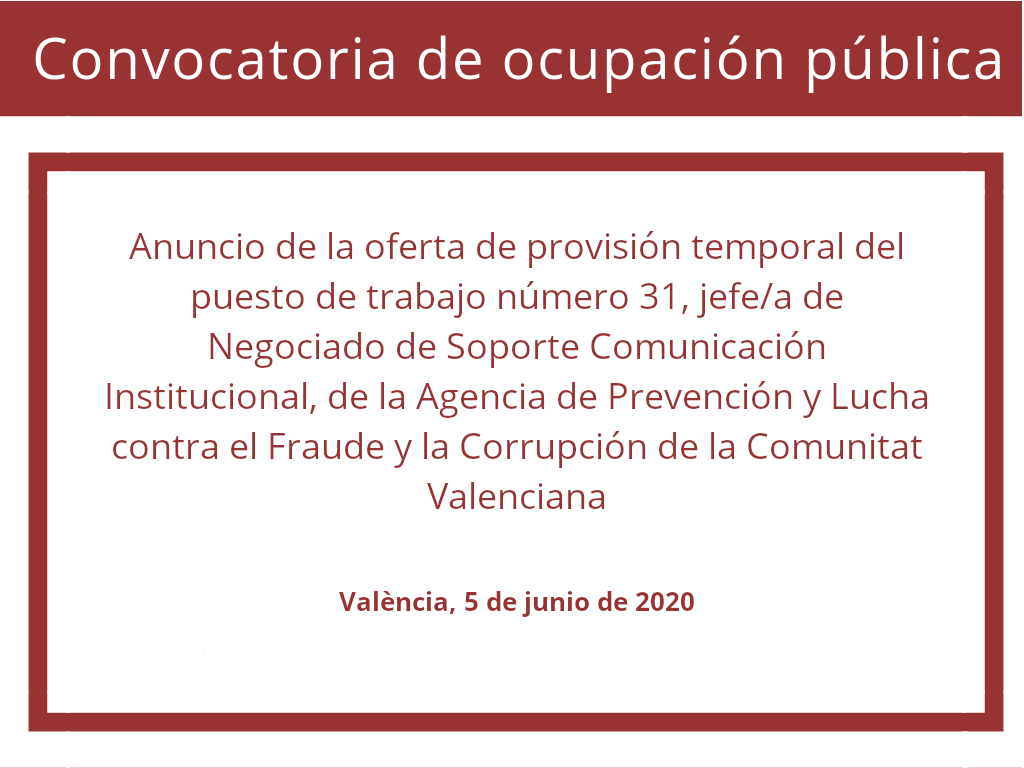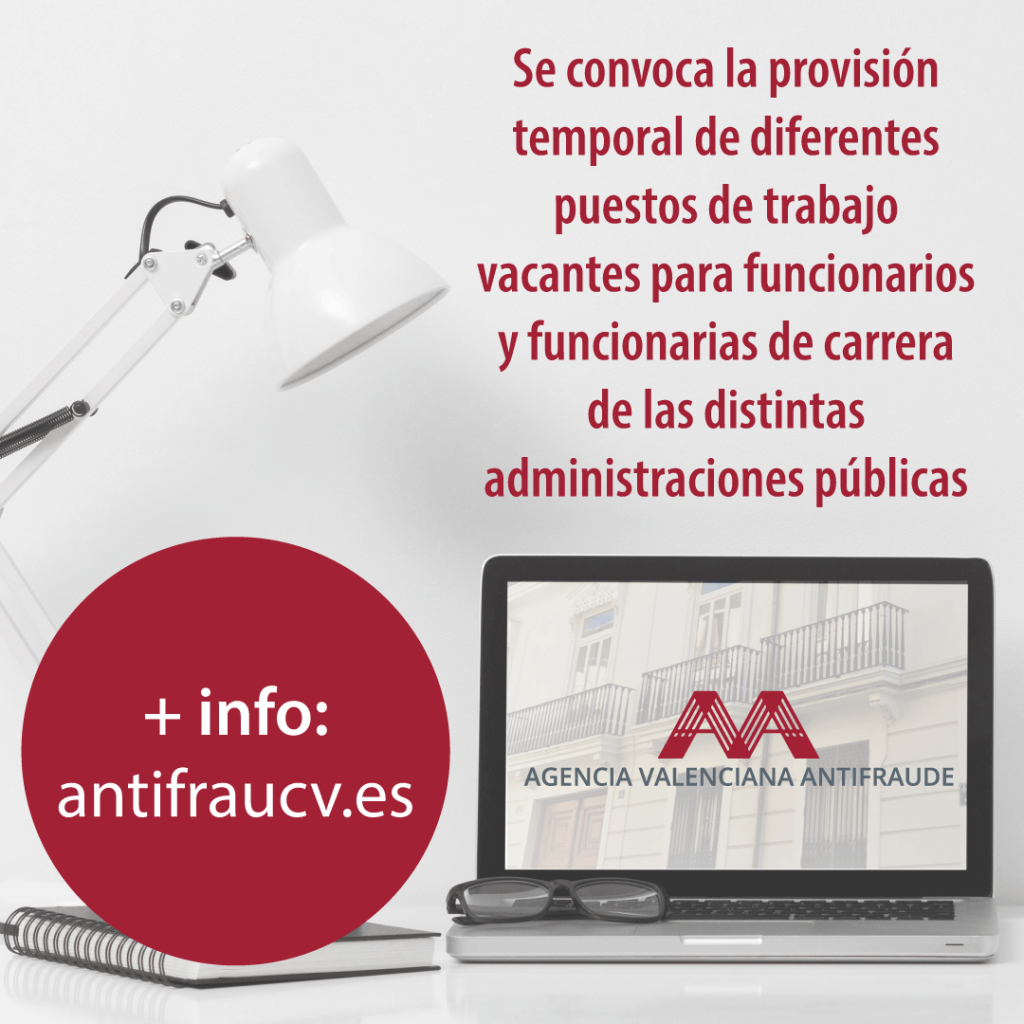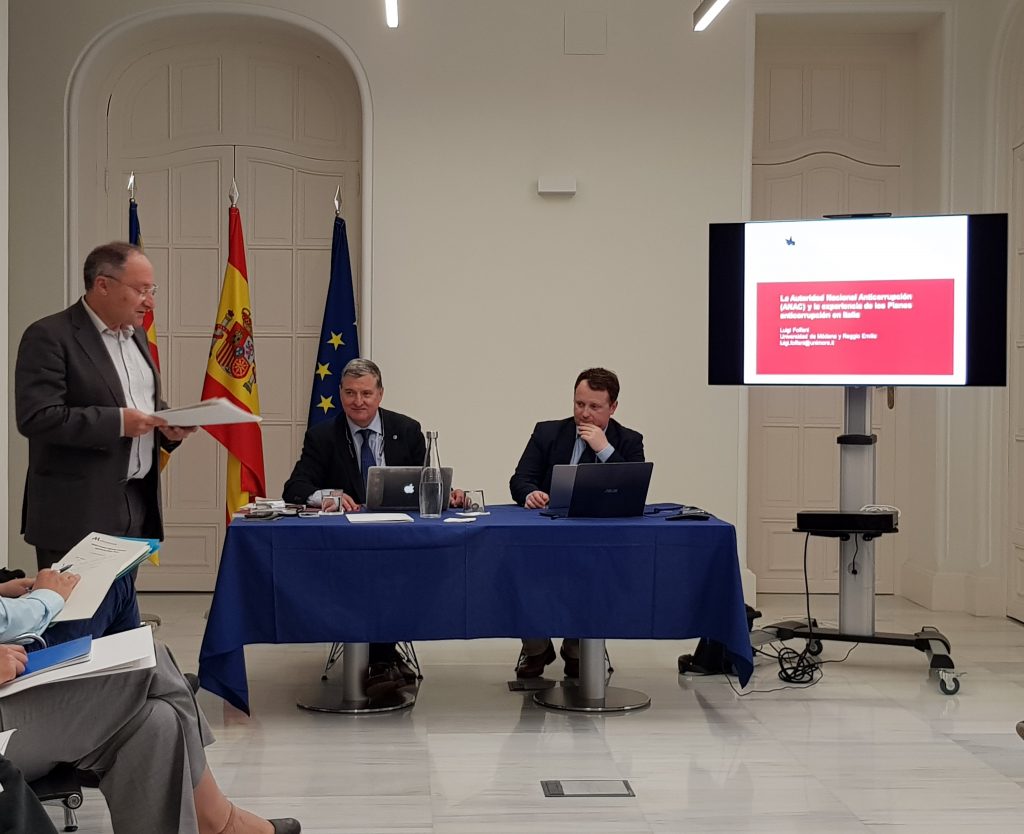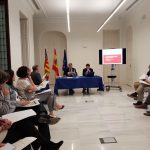In accordance with the resolution of the Agency’s management, of May 21, 2020, number 156, the following applies:
I.- Update the list of vacant positions in this Agency, for their temporary provision through the procedure of commission of services or provisional assignment, with the incorporation of civil servants and career civil servants of the different public administrations that meet the requirements demanded in the List of Agency jobs (DOGV no. 8789 / 04.15.2020).
II.- The career civil servant staff interested in participating in the process of temporary provision of job number 31, Head of Institutional Communication Support Bureau must belong to the same subgroup and meet the requirements demanded in the corresponding relationships of positions of job.
III.- To open, in order to proceed to temporary provision, a period of five business days from the day following the insertion of this announcement on the Agency’s Notice Board, for the purposes of presenting the corresponding instances, according to the model attached.
IV.- Interested persons, considering their status as a career official and, therefore, the access and availability of electronic means, must present their request for participation only through the electronic registry of this Agency:
https://sede.antifraucv.es/opencms/opencms/sede
You must indicate as the body to which the Administrative Management Unit is sent, and expressly indicate the position to which your application refers.
| Link to the publication on the Notice Board of the Agency’s Electronic Headquarters |







